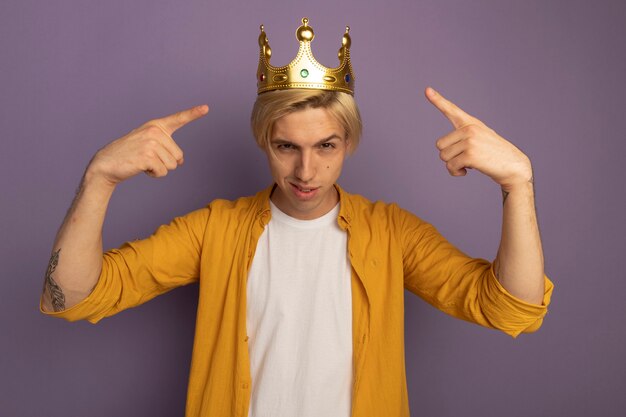Facts about Prince – Untangling the Royal Mystique

The prince is next in line for the throne.
Princes often undergo rigorous training to prepare for their future roles.
Prince William is the second in line for the British throne.
Princes often participate in charity work.
Prince Harry served in the British army.
Some princes are known for their passion for sports.
Princes can have a great influence on social causes.
Princes often receive extensive education in various subjects.
The prince’s role is not only ceremonial but also involves representing their country.
Princes often have a symbol or logo associated with their position.
Some princes have embarked on successful entrepreneurial endeavors.
Princes often attend important state events.
Princes can play a significant role in promoting cultural heritage.
Some princes have a keen interest in environmental conservation.
Prince Charles is one of the longest-serving heirs to the British throne.
Princes can inherit vast estates and properties.
Some princes are talented musicians or artists.
Princes often carry out diplomatic visits to foster international relations.
Princes can have a busy schedule packed with official engagements.
Prince Albert II of Monaco is known for his activism for environmental causes.
Princes sometimes have official residences, such as palaces.
Some princes have a strong connection with the armed forces.
Facts about Prince – Untangling the Royal Mystique part 2
Princes can bring attention to important societal issues through their platforms.
Prince Harry established the Invictus Games for wounded veterans.
Princes often have a team of advisors to assist them in their duties.
Some princes are known for their impeccable fashion choices.
Princes can be patrons of various cultural and educational institutions.
Prince William and Prince Harry established the Royal Foundation to support charitable causes.
Princes sometimes serve as ambassadors for their countries.
Some princes have a noble lineage dating back several centuries.
Princes can break stereotypes and bring fresh perspectives to traditional institutions.
Prince Edward, the youngest son of Queen Elizabeth II, is known for his theatrical endeavors.
Princes often engage in public speaking and addressing large audiences.
Princes can be influential voices for youth empowerment and education.
Some princes have a natural affinity for languages and can speak multiple tongues.
Princes sometimes take on leadership roles within the military.
Princes can bring economic benefits to their countries through promoting tourism and trade.
Prince Harry has been involved in numerous philanthropic initiatives, including mental health awareness.
Princes often receive military training and may hold honorary military positions.
Princes can inspire and motivate others through their actions and words.
Some princes have been known to practice unconventional hobbies, such as skydiving or motor racing.
Princes sometimes have special ceremonies to mark important milestones in their lives.
Princes can be advocates for diversity and inclusivity in society.
Prince Charles is known for his efforts in sustainable farming and organic produce.
Princes often uphold traditional values while adapting to modern challenges.

